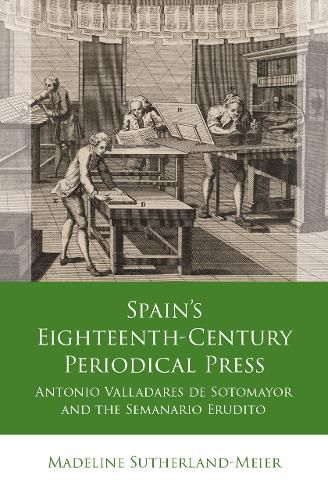Readings Newsletter
Become a Readings Member to make your shopping experience even easier.
Sign in or sign up for free!
You’re not far away from qualifying for FREE standard shipping within Australia
You’ve qualified for FREE standard shipping within Australia
The cart is loading…






This is the first monographic study of the Semanario Erudito, one of the most important learned periodicals of late eighteenth-century Spain.
Its editor, Antonio Valladares de Sotomayor (17371820), sought to recover the history of Spain and, through his periodical, instruct his readers. The book begins by discussing Valladares's life and works; he was a prolific and popular dramatist, as well as a professional editor of books and other periodicals. Documents from Spain's Archivo Histrico Nacional inform the next two chapters, which examine the periodical's history; these chapters treat the censorship process, as well as the printers, sellers and readers of the Semanario.
The book's second half looks at what Valladarespublished reformist tracts by arbitristas and proyectistas, reflections on the monarchy and the role of privados, writings by eighteenth-century figures such as Macanaz, Burriel, Mayans and Sarmiento and suggests why he might have selected particular texts for his readers.
$9.00 standard shipping within Australia
FREE standard shipping within Australia for orders over $100.00
Express & International shipping calculated at checkout
This is the first monographic study of the Semanario Erudito, one of the most important learned periodicals of late eighteenth-century Spain.
Its editor, Antonio Valladares de Sotomayor (17371820), sought to recover the history of Spain and, through his periodical, instruct his readers. The book begins by discussing Valladares's life and works; he was a prolific and popular dramatist, as well as a professional editor of books and other periodicals. Documents from Spain's Archivo Histrico Nacional inform the next two chapters, which examine the periodical's history; these chapters treat the censorship process, as well as the printers, sellers and readers of the Semanario.
The book's second half looks at what Valladarespublished reformist tracts by arbitristas and proyectistas, reflections on the monarchy and the role of privados, writings by eighteenth-century figures such as Macanaz, Burriel, Mayans and Sarmiento and suggests why he might have selected particular texts for his readers.